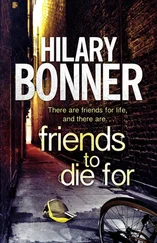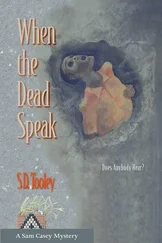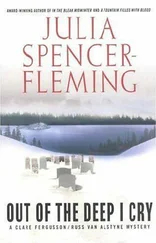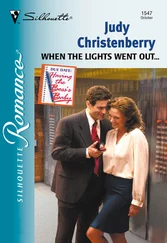“Are you asking me for reassurance concerning the legal processes of this country, Detective Sergeant?” she asked.
Cooper grinned back. “Sorry, boss. I should know better, shouldn’t I?”
“Yes,” said Karen. “You damned well should.” Back at her desk Karen slumped into her chair. She suddenly felt very tired. She realized that she was experiencing an immense sense of anticlimax, and she supposed that she should not be overly surprised by that. The buzz of the past few days could not continue indefinitely.
Now came the time for waiting, even though they were still working at building the case against Richard Marshall in every way possible.
She remembered Bill Talbot then. She had failed to ring him back as promised to rearrange their cancelled meeting. Not only did she owe him that — Bill had been very much her mentor during the years they had worked together — but also if there was anybody who might be able to delve into the past and come up with something, anything, a bit extra that might be used against Marshall, it could well be Talbot.
Also, this was the call she had been looking forward to. Talbot was just going to love the news she had for him, and she wanted to deliver it personally before the release of a statement which she had already authorized the press office to issue later that day.
Her old boss did not disappoint. Talbot actually gave a whoop into the telephone when she told him that Marshall had been charged minutes earlier.
“Look, if you want to meet up in The Bell tonight for a drink I’ll tell you the whole story. There were actually one or two moments when the bastard’s smirk slipped.”
Talbot chuckled. “Can’t wait to hear about that,” he said. Then in a quieter voice he asked: “Is it going to stick, Karen?”
“God, I hope so,” she replied. “It’s not copper-bottomed, but it’s strong. Any jury with half a brain between them really should send him down.”
“Right, no chance then,” responded Talbot.
“Don’t even say that in jest.”
In spite of that ironic final exchange, she felt much more cheerful and positive after speaking to Talbot and launched herself with energy, if not with enthusiasm, into her remaining tasks of the day, almost all of which involved her least favourite activity, dealing with paperwork.
Bill Talbot was waiting for her when she got to the pub and had already been there some time judging from the inch or so of beer which was all that was left in his pint pot. She was not surprised. This was as big a day for him as it was for her — maybe even bigger, since Talbot had headed the until-now unsuccessful Marshall investigation for much longer than she had.
He asked her what she was drinking, ordered the bottle of cold Bud she requested and another pint for himself, then suggested they retreat to a quieter and more private corner of the bar where they could talk quite freely.
First of all Karen cheerfully related the story of Marshall’s arrest. She had just moved on to describe to a thoroughly understanding Bill Talbot, who had himself suffered in this way all those years before, the so-far unenlightening series of interviews that had been conducted with Marshall, when she became aware, in that inexplicable way that people do, that she was being stared at.
Swinging around in her chair she spotted John Kelly standing at the bar. It was undoubtedly his gaze that she had felt boring into her back. And as soon as he caught her eye the reporter began to walk towards her and Bill.
“Congratulations, Detective Superintendent,” he said with a smile. “I thought I might find you here.”
“Typical,” said Karen. It was, too. Kelly had a quite unfathomable knack of seeking out anyone he wanted to talk to when he was on a story, even if they didn’t want to talk to him. Or perhaps particularly if they didn’t want to talk to him, Karen reflected wryly. He certainly always seemed able to find her, anyway.
“Can I buy you a celebratory drink?” Kelly continued.
Karen opened her mouth to refuse — this was one occasion when she really didn’t want Kelly’s company and she was quite sure that Bill Talbot wouldn’t want it either — when the retired detective butted in.
“Thanks, John, mine’s a pint,” he said, to Karen’s astonishment.
She then accepted the offer too, ordering another Bud, and, as the reporter made his way to the bar to buy the drinks, she turned to Talbot.
“I didn’t know you even knew Kelly,” she remarked.
Talbot smiled. “He was raising hell in Fleet Street during most of my time on the job, but I remember him as a cub reporter cutting his teeth on the old Torquay Times . And our paths have crossed a few times since he’s been back here on the Argus . Anyway, he’s up to his neck in the Marshall affair. He’s suffered because of it, too, just like so many of us, and that’s a bond, really. This day will have meant a great deal to John Kelly. He won’t have liked the idea of Richard Marshall walking around the world a free man any more than you or me, Karen, would he?”
Karen was puzzled. She knew, of course, that Kelly had been employed by the Torquay Times at the time Clara Marshall and her children disappeared, and that he had worked on the story back then. But Talbot seemed to be referring to a greater involvement than that.
“What are you getting at?” she asked.
“Don’t you know?” Bill raised his eyebrows in surprise. “I thought you two were close.”
“We are. Ish. But I don’t live in the bloody man’s head, thank God.”
Before she could learn any more Kelly returned with the drinks. He was balancing his own tomato juice — Kelly was a recovered alcoholic whose only hope of leading a halfway normal life was not to touch drink at all — somewhat precariously between Talbot’s pint and Karen’s bottle of Bud. Just as he reached the table the glass of juice slipped from his grasp, thick red liquid splashed over Karen’s cream T-shirt and her grey linen trouser suit and the glass dropped onto the hard tiled floor smashing into many pieces and sending a further shower of red upwards.
Involuntarily Karen jumped to her feet, brushing ineffectively with one hand at the red stains which seemed to be spreading all over her clothes.
“Oh, shit,” said Kelly. “God, I’m sorry.”
“Just get a fucking cloth or something, will you?” responded Karen. She couldn’t believe it. The grey linen trouser suit was one of her few outfits that could be considered suitable both for meetings with the chief constable and court appearances. And her cream T-shirt, which was actually rather a good silk one, was unlikely ever to recover from its tomato-juice soaking.
“Oh, fuck,” she continued. She might be a top detective but she was also a woman who loved good clothes, and she took a lot of trouble over her appearance whatever the chief constable might on occasions think of her apparel.
Kelly returned with a cloth. The barman joined in with another cloth, and a major mopping-up operation began. Karen was sponged down as effectively as possible, the table wiped over and the pieces of glass swept up off the floor.
By the time she resumed her story of events of the past few days — rather more cautiously now that a reporter was present, even though he had immediately assured both her and Talbot that their entire conversation would be in confidence — her former boss’s rather intriguing reference to Kelly’s involvement in the Marshall affair had passed into the mists of time. It was not mentioned again.
The trial began at Exeter Crown Court five months later, fast-tracked through according to the stipulations of the Nairey Report which a couple of years earlier had put an end to prisoners on serious charges being held on remand for sometimes as long as one or more years.
Читать дальше












